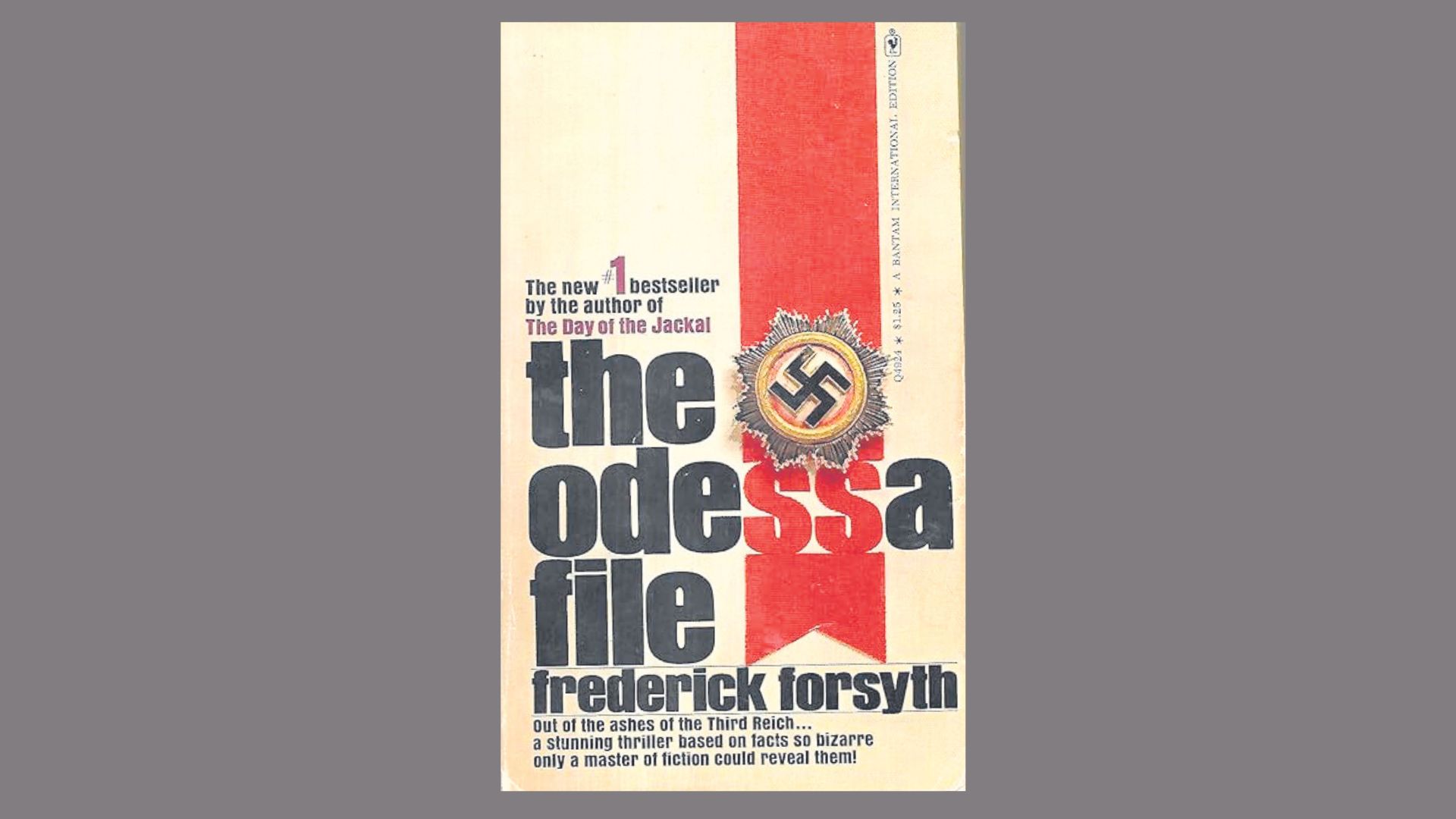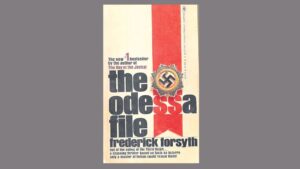“The Odessa File,” penned by the acclaimed British author Frederick Forsyth, is a riveting thriller that takes readers on a gripping journey through post-World War II Europe. Published in 1972, this novel masterfully blends historical events with fictional narrative, delivering a tale of suspense, intrigue, and moral dilemmas.
Set in 1963, against the backdrop of the Cold War era and the aftermath of the Holocaust, the story follows Peter Miller, a young German journalist living in Hamburg. The catalyst for the plot occurs when Miller stumbles upon the diary of a Jewish Holocaust survivor who had recently committed suicide. Intrigued by the contents of the diary, which hint at the existence of a secretive organization known as Odessa, Miller embarks on a perilous quest for the truth.
Forsyth’s meticulous attention to detail and thorough research are evident throughout the novel, as he skillfully weaves together historical facts with fictional elements. The portrayal of post-war Germany, with its lingering scars and pervasive atmosphere of suspicion, is vividly depicted, immersing readers in the tumultuous period of the early 1960s.
One of the novel’s strengths lies in its character development, particularly that of the protagonist, Peter Miller. As the story unfolds, Miller evolves from a curious and somewhat naive journalist into a determined and morally conflicted investigator. His relentless pursuit of justice, despite facing numerous obstacles and dangers, makes him a compelling and relatable protagonist.
The supporting cast of characters is equally well-drawn, each playing a distinct role in advancing the plot and adding depth to the narrative. From the enigmatic Nazi war criminal Eduard Roschmann to the enigmatic Holocaust survivor Salomon Tauber, Forsyth’s characters are multi-dimensional and add layers of complexity to the story.
Central to the novel’s theme is the concept of justice and accountability in the aftermath of war. Through Miller’s quest to expose the crimes of the Odessa organization and bring its members to justice, Forsyth explores the moral ambiguity surrounding issues of vengeance, forgiveness, and collective guilt. The ethical dilemmas faced by the characters force readers to confront challenging questions about the nature of justice and the legacy of the Holocaust.
“The Odessa File” is also notable for its relentless pacing and suspenseful plot twists. Forsyth expertly maintains tension throughout the narrative, keeping readers on the edge of their seats as Miller delves deeper into the shadowy world of Odessa. The novel’s climactic moments are executed with precision, delivering satisfying payoffs while leaving room for lingering ambiguity.
Furthermore, Forsyth’s prose is crisp and evocative, painting vivid imagery of the novel’s various settings, from the bustling streets of Hamburg to the desolate landscapes of Argentina. His attention to detail and flair for storytelling make “The Odessa File” a captivating read from start to finish.
In conclusion, “The Odessa File” stands as a timeless classic in the realm of espionage fiction, blending historical realism with pulse-pounding thrills. Frederick Forsyth’s masterful storytelling, rich characterizations, and thought-provoking themes make this novel a must-read for fans of the genre and anyone interested in exploring the complexities of post-war Europe.
With its gripping narrative and thought-provoking themes, “The Odessa File” continues to captivate readers and cement Frederick Forsyth’s reputation as a master storyteller.














